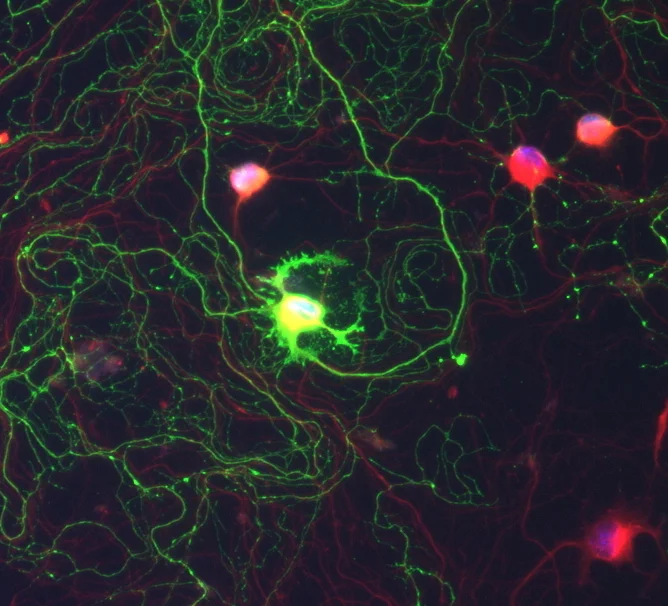Research
How does pain become chronic?
All of us are likely to know someone who suffers from chronic pain, be it back pain, migraine or arthritis. It is a very common condition with few treatment options.
Research has revealed that chronic pain patients have an overly responsive nervous system. What is not clear is why this state should persist over long periods of time. Or whether some people are more vulnerable than others to develop chronic pain.
This laboratory is investigating various possible causes for how pain might become chronic. We are examining the role of immune cells and other supporting cell types and how they may contribute to making nerves persistently hypersensitive.
We are also exploring the possibility that injuries or diseases which cause chronic pain might change a cell's epigenetic profile. Epigenetics is the process that determines which gene is expressed and where. Some epigenetic signals have direct functional consequences, while others are just primers: flags that indicate a potential to act or be modified. Alterations in epigenetics could therefore lead to the long-term changes in sensitivity we observe in pain.
To address these questions, we use transgenic models and high-throughput molecular analyses on sorted cell populations, such as bulk and single cell RNA sequencing and chromatin analyses (ChIP-seq, CUT&Tag, ATAC-seq). We also work with induced pluripotent stem cell derived models of peripheral neurons.
Our group is passionate about interdisciplinary collaboration & reproducible and open science in a positive environment. Please feel free to get in touch with us if you have any questions about our work or have ideas for a collaboration.

